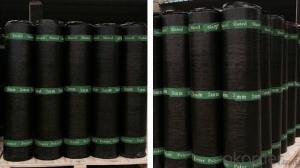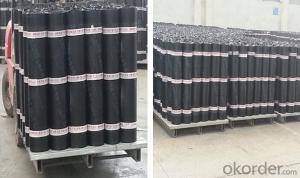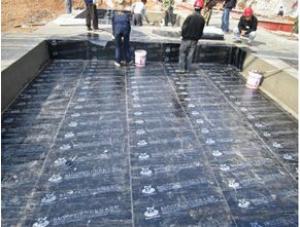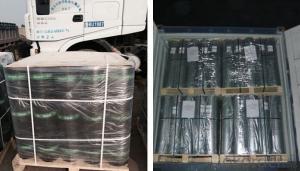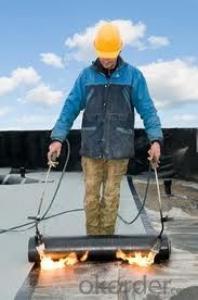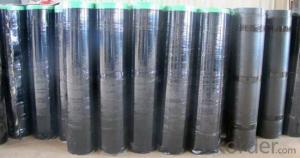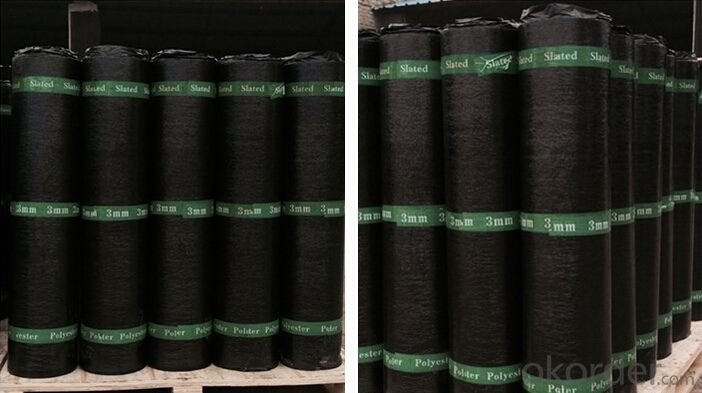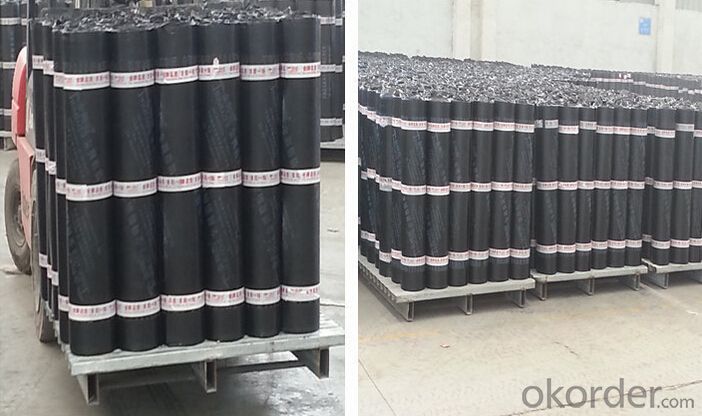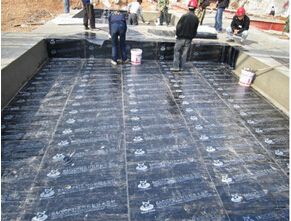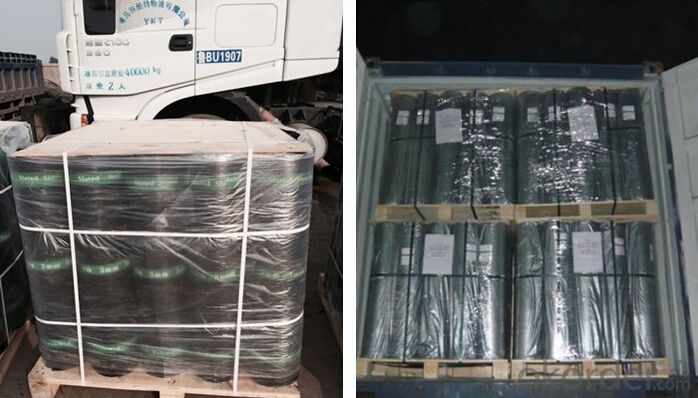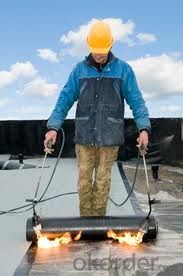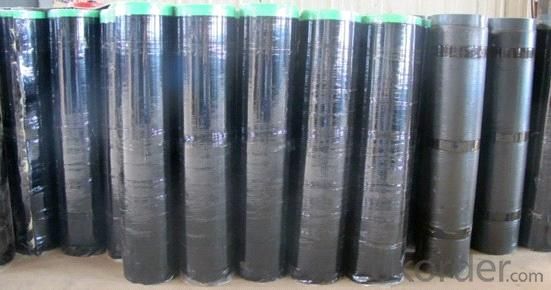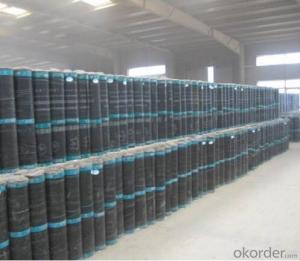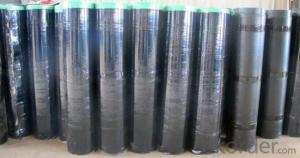SBS/APP Bitumen Waterproof Membrane With 160g180g Polyester Felt
- Loading Port:
- Shanghai
- Payment Terms:
- TT OR LC
- Min Order Qty:
- 1000 m²
- Supply Capability:
- 200000 m²/month
OKorder Service Pledge
OKorder Financial Service
You Might Also Like
product description:
sbs waterproof membrane take the “Skin” type waterproof thought, according to the features of construction site, on the basis of width elastomeric modified bitumen waterproofing membrane, combining with features of wet-application self-adhesive membrane, use advanced equipment to produce 2 meters width that WP-SBS wet-application width elastomeric modified bitumen waterproofing membrane (Hereinafter referred to: WP-SBS membrane).WP-SBS is made of bitumen modified with Styrene-Butadiene- Styrene (SBS)as dipping and painting. Its upper surface covers PE membrane and color sand or schist, and lower surface is made of isolation material. Products correspond to the national standards GB18242-2008(elastomeric modified bitumen waterproofing membrane), paste by cement or cement mortar, and construct on the wet base, achieving tight and full adhesion with substrates, eliminating fluid-channeling layer, all above contribute to making a reliable “Skin” type waterproof system, which is a breakthrough innovation in ordinary modified bitumen membrane.
Characteristic
1.Good impermeability
2.Possess good tensile strength, elongation and size stability which could be well suited the substrate distortion and crack.
3.Good performance in anti-strength, anti-resistance , anti-erosion, anti-mildew, anti-weathering
4.SBS modified bitumen membrane is specially being applied in the cold area with low temperature, while APP modified bitumen membrane is applied in the area with high temperature.
5.Convenient installation
Applicable scope:
It is widely used for civil building roofing, underground, bridge, parking, pool, tunnel in the line of waterproofing and dampproofing, especially for the building under high temperature.
Application
The needle-punched polyester is widely used as the carrier for waterproofing membrane production. The membrane made withneedle-punched polyester matis widely used for: Construction waterproofing; Moisture-proof in roof engineering, underground engineering, indoor ground, etc;Corrosion resistance for water pool or building bases.
Our Services
1.If you need some advises for the waterproof construction, we have the best engineer to serve you.
2.We send the free samples to you by freight collect.
3.We will guarantee the quality and the competitive price.
4.We will give you the best packaging and safe shipping.
5.If any problem, we will always be right here waiting for you.
Packaging & Shipping
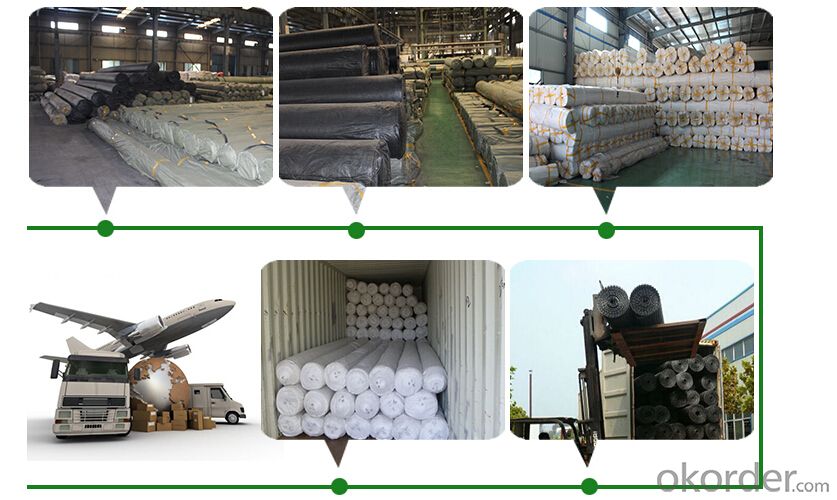
| Packing | Woven bag/PE bag packing or as customer request |
| Shipping | FOB Changsha,customized shipping terms and oppointed port accepted |
Technical parameter
| Item | Specifications | ||||||||
| Geotextile Unit Weight (g/m²) | 300 | 500 | 600 | 700 | 800 | 900 | 1000 | 1100 | |
| Geomembrane Thickness (mm) | 0.25-0.35 | 0.30-0.50 | |||||||
| Nominal Fracture Strength (KN/m) | 2.50 | 7.50 | 10 | 12 | 14 | 16 | 18 | 20 | |
| Breaking Strength (KN/m,≥,LD/TD) | 2.50 | 7.50 | 10 | 12 | 14 | 16 | 18 | 20 | |
| Standard Intensity Corresponding Elongation Rate (%) | 30~100 | ||||||||
| CBR Burst Strength (KN,≥) | 0.70 | 1.50 | 1.90 | 2.20 | 2.50 | 2.80 | 3.00 | 3.20 | |
| Longitudinal Tear Strength (KN,≥) | 0.05 | 0.25 | 0.32 | 0.40 | 0.48 | 0.56 | 0.62 | 0.70 | |
| Hydrostatic Pressve (Mpa) | See List Below | ||||||||
| Peel Strength (N/cm,≥) | 6 | ||||||||
| Vertical Permeability Coefficient (cm/s) | According to design or contract mentioned. | ||||||||
| Width Variation (%) | -1.00 | ||||||||
| Item | Geomembrane Thickness (mm) | ||||||||
| 0.20 | 0.30 | 0.40 | 0.50 | 0.60 | 0.70 | 0.80 | 1.00 | ||
| Hydrostatic Pressve (Mpa) | One geotextiles with one geomembrane | 0.40 | 0.50 | 0.60 | 0.80 | 1.00 | 1.20 | 1.40 | 1.60 |
| Two geotextiles with one geomembrane | 0.50 | 0.60 | 0.80 | 1.00 | 1.20 | 1.40 | 1.60 | 1.80 | |
Professional test machines ensure the products qualified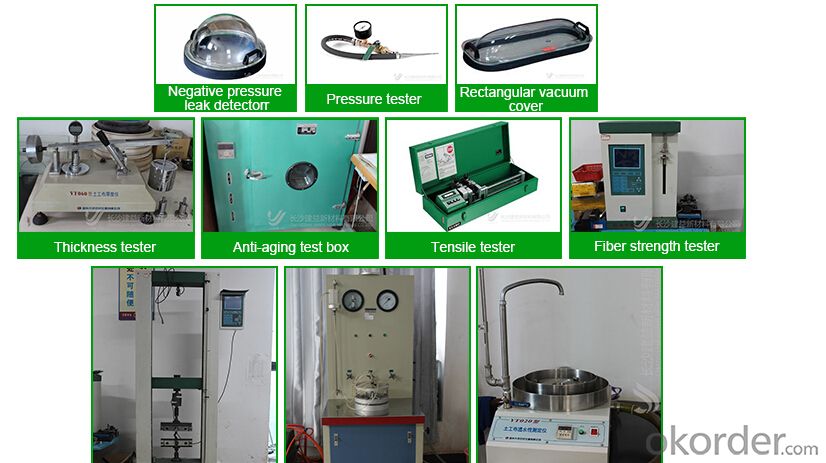 roduct certifications
roduct certifications
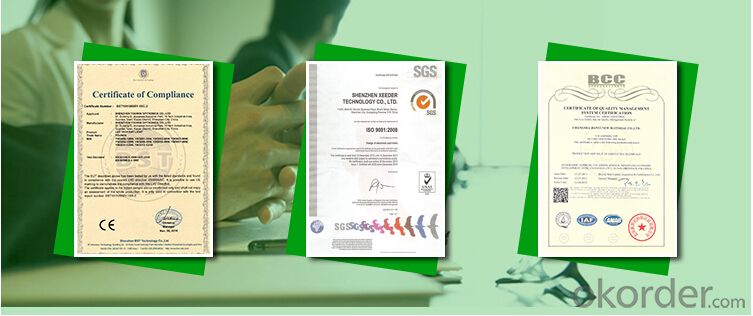
Inquiry Note
How to send an effective inquiry for saving your time?
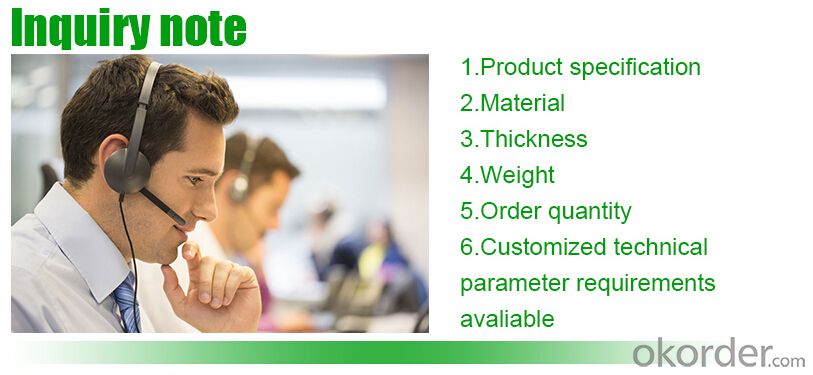
product show
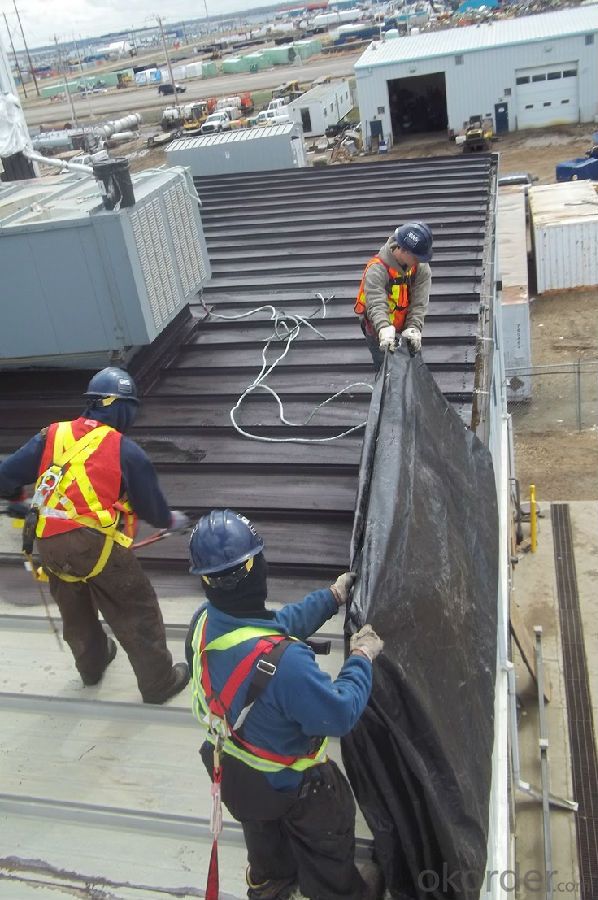
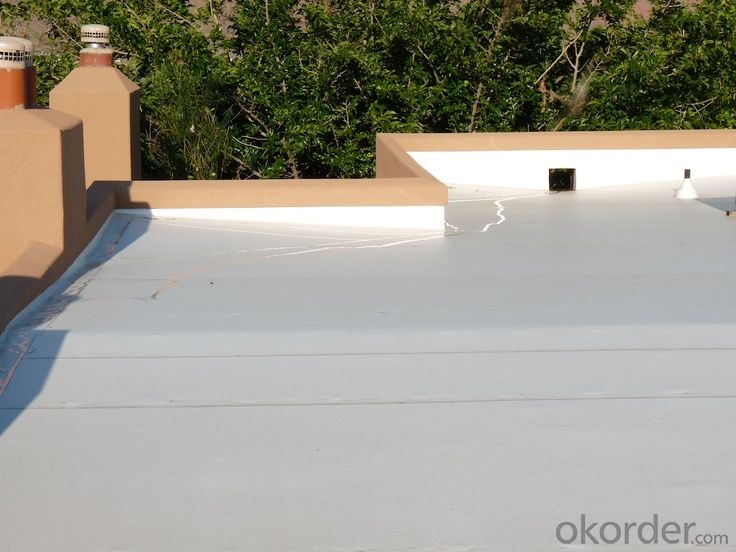
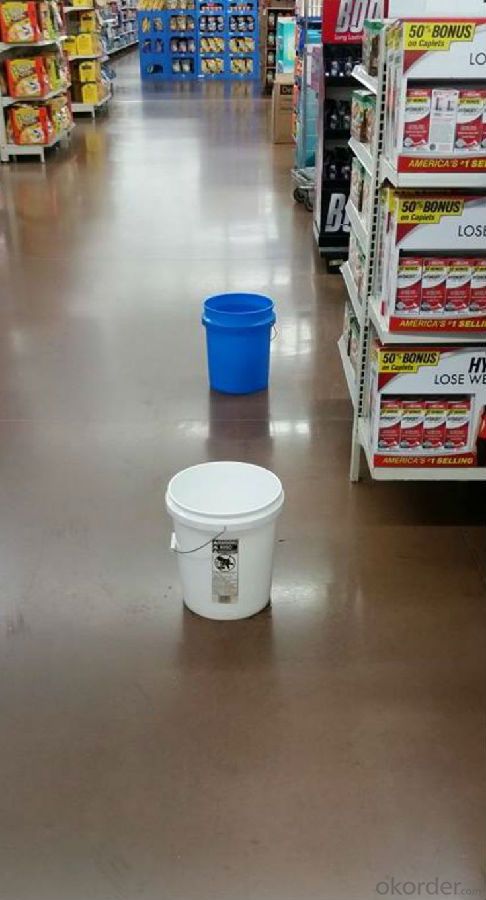
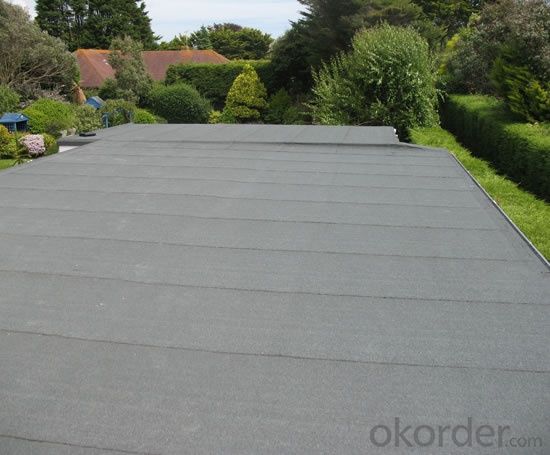
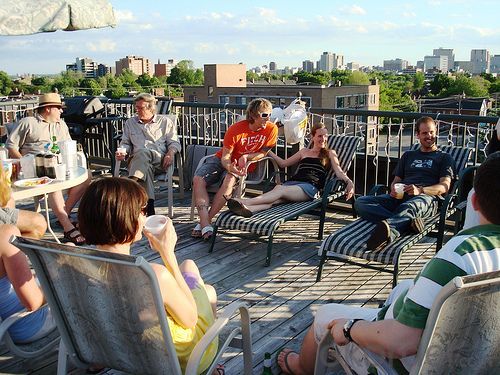
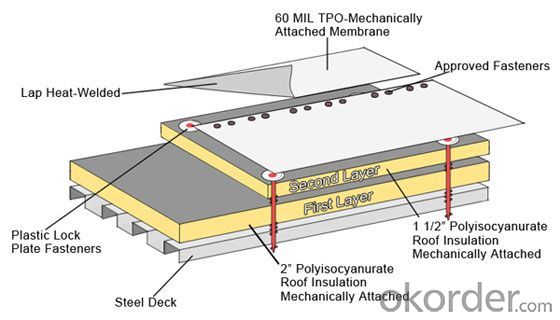
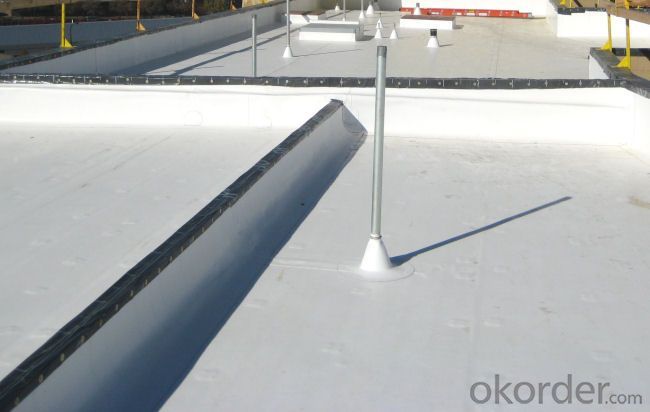
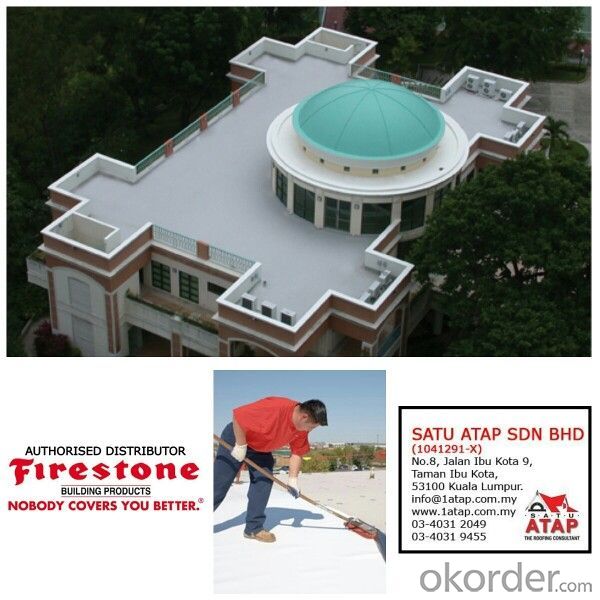
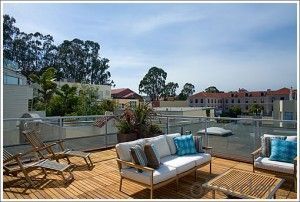
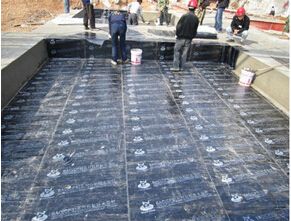
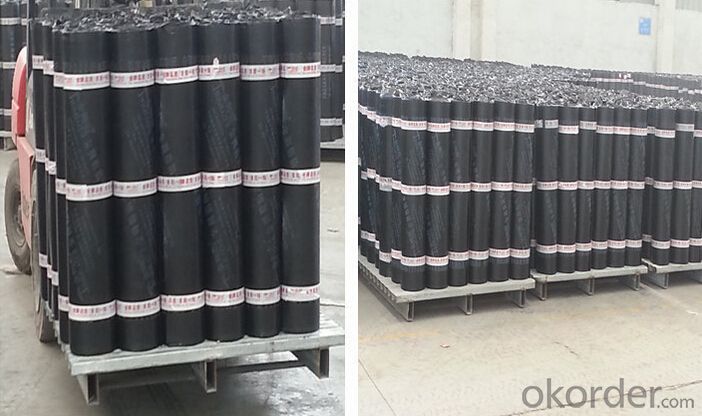
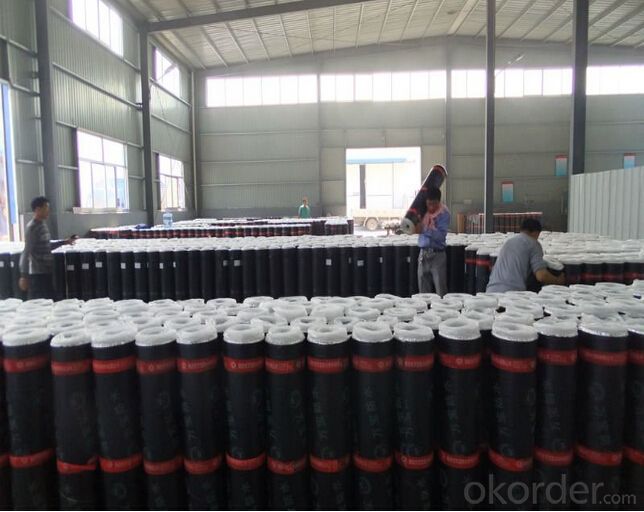
FAQ

- Q: Can a waterproofing membrane be used for HVAC systems?
- No, a waterproofing membrane cannot be directly used for HVAC systems. Waterproofing membranes are designed to prevent water from penetrating through surfaces such as roofs, foundations, or walls. They are typically made of materials like bitumen, rubber, or polyurethane and are meant to protect against water damage. On the other hand, HVAC (Heating, Ventilation, and Air Conditioning) systems are responsible for regulating temperature, humidity, and air quality within a building. They consist of various components like ductwork, air handlers, and condensing units that are specifically designed for the purpose of conditioning and circulating air. While there may be some overlap in terms of protecting certain HVAC system components from moisture, such as ductwork insulation, a waterproofing membrane alone is not sufficient or appropriate for HVAC systems. HVAC systems require specialized materials and equipment that are designed to handle the specific needs and requirements of air conditioning and ventilation. Therefore, it is important to use the proper materials and equipment specifically designed for HVAC systems to ensure their efficient and effective operation.
- Q: Does a waterproofing membrane require any special cleaning or maintenance procedures?
- Yes, a waterproofing membrane typically requires special cleaning and maintenance procedures to ensure its effectiveness and longevity. Regular inspections, cleaning off debris, and addressing any damage or wear are essential to prevent leaks or deterioration. Additionally, specific cleaning products and techniques may be recommended by the manufacturer or installer to maintain the membrane's performance.
- Q: Can a waterproofing membrane be tiled over?
- Yes, a waterproofing membrane can be tiled over. Tiling over a waterproofing membrane provides an additional layer of protection against water damage and helps create a durable and moisture-resistant surface.
- Q: Can a waterproofing membrane be used on storage tanks?
- Yes, a waterproofing membrane can be used on storage tanks. Waterproofing membranes are designed to create a barrier that prevents water or other liquids from penetrating through the surface they are applied to. When applied to storage tanks, these membranes can provide protection against leaks, corrosion, and damage caused by moisture. They are commonly used in various industries, including oil and gas, chemical, and water treatment, to ensure the integrity and longevity of storage tanks. Additionally, waterproofing membranes can be tailored to meet specific requirements, such as resistance to chemicals, UV exposure, or high temperatures, making them suitable for a wide range of storage tank applications.
- Q: Is a waterproofing membrane resistant to gasoline or other petroleum-based substances?
- Waterproofing membranes are typically able to resist gasoline and other substances that are petroleum-based. These membranes are commonly manufactured from materials like polyurethane or PVC, which are recognized for their ability to withstand chemicals and petroleum products. This resistance guarantees that the membrane remains intact and effective at preventing water from infiltrating even when it is exposed to gasoline or other petroleum-based substances. However, it is crucial to mention that the actual level of resistance may vary depending on the type and quality of the waterproofing membrane being used. It is recommended to seek advice from a professional or review the product specifications to ensure that the selected membrane is suitable for the intended application involving gasoline or petroleum-based substances.
- Q: Can waterproofing membranes be used on elevator shafts?
- Yes, waterproofing membranes can be used on elevator shafts to prevent water infiltration and protect the structure from moisture damage.
- Q: Can a waterproofing membrane be used on asphalt surfaces?
- Yes, a waterproofing membrane can be used on asphalt surfaces. Waterproofing membranes are often used to protect various surfaces, including asphalt, from water damage. They create a barrier that prevents water from seeping into the asphalt, reducing the risk of cracks, deterioration, and other forms of damage caused by moisture.
- Q: Is a waterproofing membrane resistant to abrasion?
- Yes, a waterproofing membrane is generally resistant to abrasion. Waterproofing membranes are designed to provide a protective barrier against water and moisture intrusion. They are typically made from durable materials such as PVC, TPO, or EPDM, which have high resistance to abrasion. This allows them to withstand the normal wear and tear that may occur during installation or due to foot traffic or other mechanical activities. However, it is important to note that the level of abrasion resistance can vary depending on the specific type and quality of the membrane, as well as the conditions in which it is installed or used. Therefore, it is always recommended to consult the manufacturer's guidelines and specifications to ensure proper selection and installation of a waterproofing membrane.
- Q: Is a waterproofing membrane resistant to UV radiation?
- Yes, a waterproofing membrane is typically resistant to UV radiation. This is because most waterproofing membranes are designed to withstand exposure to sunlight and other environmental factors, ensuring long-term durability and protection against UV radiation.
- Q: What is the PEDM waterproofing membrane material?
- It is widely used at home and abroad high-grade waterproof material for roof, underground, subway, bridges and require a higher waterproofing works.
Send your message to us
SBS/APP Bitumen Waterproof Membrane With 160g180g Polyester Felt
- Loading Port:
- Shanghai
- Payment Terms:
- TT OR LC
- Min Order Qty:
- 1000 m²
- Supply Capability:
- 200000 m²/month
OKorder Service Pledge
OKorder Financial Service
Similar products
Hot products
Hot Searches
Related keywords
